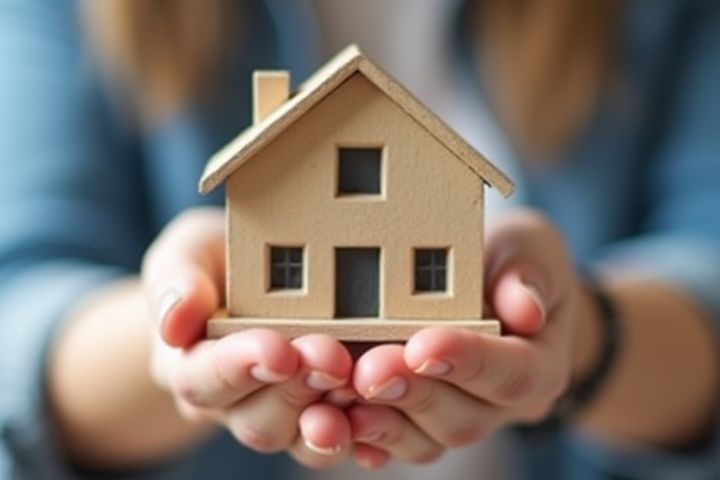
Buying a house with bad credit can be challenging, but it's not impossible. Lenders may offer options like FHA loans, which cater to individuals with lower credit scores, allowing for a down payment as low as 3.5%. Improving your financial situation through measures such as increasing your income or reducing debt can enhance your chances of mortgage approval. Consider working with specialized lenders who focus on subprime mortgages, as they often provide more flexible terms. You can also explore alternative funding sources like credit unions or peer-to-peer lending platforms that may have more lenient credit requirements.
Can I Buy A House With Bad Credit
FHA loans with low credit scores
Yes, you can buy a house with bad credit through FHA loans, which are specifically designed to assist borrowers with lower credit scores. FHA guidelines allow for credit scores as low as 500, but a minimum score of 580 is generally preferred to qualify for a 3.5% down payment. If your score falls between 500 and 579, you may still qualify, but a 10% down payment will be required. This makes FHA loans a valuable option for individuals looking to purchase a home despite their credit challenges.
Obtain a higher interest rate
Buying a house with bad credit is possible, but it often comes with a significant drawback: a higher interest rate. Lenders view low credit scores, typically below 580, as high-risk, which can lead to interest rates ranging from 5% to 10% or more, compared to the national average of around 3% for borrowers with good credit. This increase in the interest rate can result in substantial additional costs over the life of your mortgage, sometimes costing thousands of dollars. You should also consider options like government-backed loans, which may offer more favorable terms, even for those with less-than-stellar credit.
Provide a larger down payment
Providing a larger down payment can significantly improve your chances of buying a house with bad credit. A down payment of 20% or more can demonstrate to lenders that you are financially responsible and reduce their perceived risk. This strategy not only lowers your monthly mortgage payment but may also lead to more favorable interest rates. Remember, putting down a larger amount upfront can create equity in your new home, giving you a solid financial foundation even with credit challenges.
Explore subprime mortgages
Buying a house with bad credit is possible by exploring subprime mortgages, which are specifically designed for borrowers with lower credit scores. These loans typically come with higher interest rates and less favorable terms, but they can provide a pathway to homeownership for those who might otherwise struggle to secure financing. To improve your chances, consider working with a lender experienced in subprime lending and prepare to demonstrate your ability to make consistent payments. You may also want to explore options like FHA loans that allow for lower credit scores while still providing reasonable terms and conditions.
Leverage co-signers
You can buy a house with bad credit by leveraging a co-signer, which enhances your mortgage application. A co-signer, typically someone with good credit, agrees to take on the financial responsibility, potentially increasing your chances of loan approval. Lenders may consider the co-signer's credit score, income, and debt-to-income ratio, which could lead to more favorable terms. Expect that some lenders may require a larger down payment or higher interest rates, but having a co-signer significantly improves your options.
Demonstrate stable income history
Demonstrating a stable income history is crucial when seeking to buy a house with bad credit. Lenders typically look for at least two years of consistent employment, which helps establish your ability to make regular mortgage payments. A steady income, ideally in the same job or industry, can mitigate concerns related to credit issues, showing that you are financially responsible. Providing documentation such as pay stubs, tax returns, and bank statements can further reinforce your case and improve your chances of obtaining financing.
Utilize credit repair strategies
You can improve your chances of buying a house with bad credit by utilizing effective credit repair strategies. Start by reviewing your credit report for errors, as correcting inaccuracies can boost your score by up to 100 points. Implement timely payments on existing debts, as your payment history accounts for 35% of your credit score. You could also consider becoming an authorized user on a well-managed credit card, which can positively impact your credit utilization ratio and overall score.
Consider lease-to-own options
Lease-to-own options present an alternative pathway for individuals with bad credit to achieve homeownership. This arrangement typically involves renting the property for a specified period, often 1 to 3 years, before having the opportunity to purchase it at a predetermined price. During the lease term, a portion of your monthly rent may be credited toward the purchase price, allowing you to build equity gradually. This approach not only gives you time to improve your credit score but also secures your future investment in a property you love.
Communicate with mortgage brokers
Communicating with mortgage brokers is essential for navigating the home-buying process, especially if you have bad credit. These professionals can provide insights into lenders that specialize in working with individuals who have lower credit scores, often below 620. They can also help identify programs such as FHA loans, which may require a down payment as low as 3.5% and are more accessible to those with credit challenges. By leveraging their expertise, you can explore various financing options and improve your chances of securing a mortgage despite your credit situation.
Research local assistance programs
Researching local assistance programs is crucial for buying a house with bad credit. Many communities offer financial aid or down payment assistance specifically designed for low-credit borrowers. Programs like FHA loans allow potential homeowners with credit scores as low as 580 to qualify with a minimum down payment of 3.5%. Additionally, non-profit organizations often provide resources for pre-purchase counseling, helping you navigate the home-buying process and improve your credit situation.
